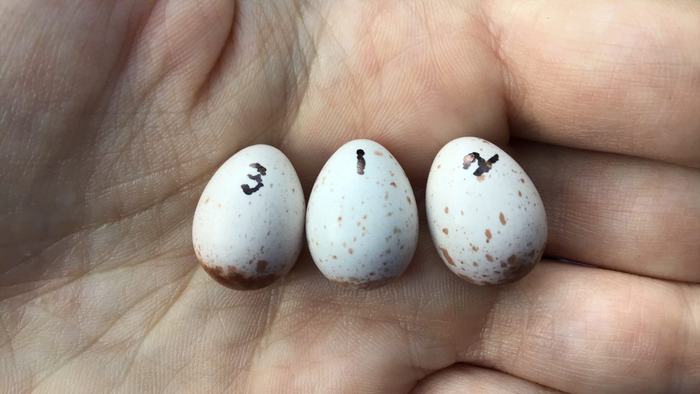

Baby birds heed their parents’ chirping and singing commands while still inside the egg.
That is the finding of a study led by researchers at the BirdLab of Flinders University in Adelaide, South Australia.
“Vocal production learning is only believed to occur in seven lineages of birds and mammals, including humans,” said senior scientist Sonia Kleindorfer, a professor at Flinders as well as the University of Vienna.
The study examined the prenatal auditory learning among embryos of three vocal learning species: red-winged fairy-wren, superb fairy-wren and Darwin’s small ground finch, as well as two vocal non-learning species — little penguin and Japanese quail.

Published Sept. 6 in the Philosophical Transactions of the Royal Society B, the study focused on whether bird embryos become accustomed to another bird’s call, finding that this is common among vocal learning and non-learning bird species and may be more widespread than previously thought.
“This research will hopefully inspire more study into the remarkable capacity of animals to learn sound,” Kleindorfer said. “By moving the time window for sound learning to the prenatal stage, this research direction opens pathways to measure neurobiological downstream effects of early auditory experience on behavior and information processing.”

Researchers conducting the study measured the vocal learning concepts in the embryos’ behavior and response to sound while in the egg, using their change in heart rate as the response variable. This came well before the birds hatched and started making complex calls or songs several months or even years after birth.
“By studying the capacity for sound learning in embryos, we are paving the way to new inroads into evolutionary and developmental timescales,” said the study’s co-author, Diane Colombelli-Négrel.
“Long before actual vocalization, we found that these tiny songbirds were also discriminating towards non-specific sounds and capable of ‘non-associative’ (not from parents) sounds, building on the complexity of vocal learning in songbirds.”

Kleindorfer said vocal production learning is by far the characteristic achievement in just seven orders of animals: primates, songbirds, parrots, hummingbirds, cetaceans (whales, dolphins and porpoises), pinnipeds (seals, sea lions and walruses) and bats.
Among primates, “only humans can do it,” she said. “As a result of the rarity of vocal production learning, animals have been grouped into so-called ‘vocal learners’ (those that learn to imitate a vocalization from a vocal tutor) and ‘vocal non-learners’ (animals that produce vocalizations without imitating a vocal tutor).”
The BirdLab group also will study in-nest calling by mother birds in seven fairy-wren and grass-wren species. Each female produces combinations of vocal elements during the calls, and some combinations are better at eliciting sound learning in embryos.
Edited by Richard Pretorius and Kristen Butler
The post Baby Birds Start Learning Their Parents’ Calls From Inside The Egg appeared first on Zenger News.



